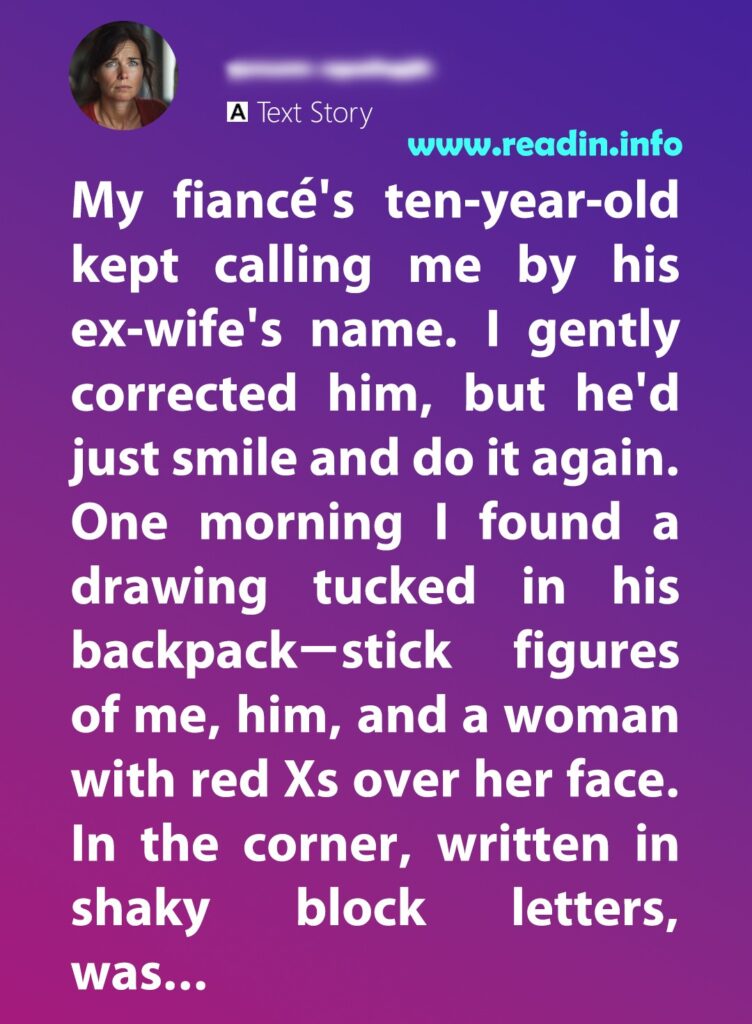When I moved in with my fiancé Rafiq and his ten-year-old son Idris, the air was thick with tension. Idris called me by his mother’s name—Zahira—and grew cold when corrected. Then I found a drawing in his backpack: stick figures of us, one woman’s face crossed out above the words “GO AWAY MOMMY.” It looked like me.
Rafiq insisted Idris just needed time. But the emotional wall grew taller—he rejected my cooking, measured me against “Mommy,” and kept me out. Then came another drawing: storm clouds, the words “NOT SAFE.”
Rafiq finally said, “That’s not you.” And I realized—Idris wasn’t angry at me. He was haunted by his past with Zahira: the instability, the custody battles, the fear. I asked Rafiq to consider therapy. Hesitant but hopeful, he agreed.
Art therapy unlocked Idris’s silence. His sketches shifted: less rage, more animals, a spaghetti dinner labeled “NOT BAD.” He began sharing old drawings too—one of him curled in a closet, shadow looming. I asked, “Is that how you used to feel?” He nodded.

Eventually, Idris stopped using Zahira’s name on me. He began calling me “Miss Hana”—gentle, respectful. Then Zahira, now sober, asked for a second chance. The first supervised visit was cautious. But Idris came back smiling. More visits followed. The drawings grew lighter.


